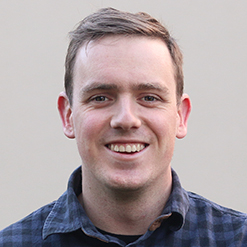Taking time out

Many of us are enjoying a much-needed break this January, but how can we maintain that sense of rest as we enter another busy year? Dr Jeremy Baker is bringing the concept of Sabbath rest into his ground-breaking medical practice, and believes the key to health includes balance and boundaries.
As a culture we’re addicted to busyness. We bounce from work function to church event to family commitments and vice versa. But while striving for a full and busy life can be rewarding, in reality God only gave us 24 hours in a day. Many of us often take our commitments too far and rapidly descend into burnout.
What if we could learn to say ‘no’ to ourselves and others—ensuring we give ourselves the kind of rest the Bible instructs? Medical doctor and senior lecturer at University of Otago, Dr Jeremy Baker, is well versed in what leads many of us into burnout.
In 2010, Jeremy established Settlers Health Centre, a Christian-based medical practice in the Christchurch suburb of Ferrymead. The clinic is unique in that it has a strong focus on mental health and community outreach. Jeremy says burnout can be traced to the boundaries we fail to put in place, along with our inability to say ‘no’ to ourselves and those around us.
‘Back in the ’80s when I first started a practice in Wellington, I felt what it was like to have a burnout experience in terms of energy and heavy workload,’ Jeremy says. ‘It was then that I first started to work on boundaries, diet and nutrition, and to take more retreat times.’
It wasn’t until sometime later that he found the writings of pastor Peter Scazzero, who offered a distinctly Christian approach to avoiding burnout. ‘Peter began to focus more on devotions and spiritual practices that were about being ready to spend time with God and the Sabbath … so we can focus on our emotional components and areas where we feel driven to succeed, perform or live up to what the boss expects us to do … I think the emotional component in us is extremely important.’
Jeremy says often part of the problem is a failure to establish healthy boundaries in the workplace and relationships. ‘It takes strength to say: “I’m over-spending my time, I’m not taking breaks … I’m not sharing with other people my concerns, fears or anxieties”.’
Adrenalin and cortisol
When we overload ourselves and begin to experience stress and anxiety, our ‘adrenal glands’ (found just above the kidneys) respond with adrenalin—this is where our body goes into a ‘fight or flight’ mode. Cortisol is another adrenal hormone that is released in times of stress. It can act on many different parts of the body and can help your body respond to stress or danger, increase your body’s metabolism of glucose, control your blood pressure and reduce inflammation.
‘Typically, however, with long-term stress, our cortisol levels are excessively elevated. And that’s going to cause a drain on the body,’ Jeremy says. ‘You’re not going to think quite so clearly and your sleep is going to suffer along with your ability to relax yourself and settle your nervous system.’
He explains the relationship between our ‘sympathetic’ and ‘parasympathetic’ nervous systems: the sympathetic is responsible for the response we refer to as ‘fight or flight’. This is the part of our nervous system that prepares the body to react to stresses such as threat or injury. It causes our heart rate to increase and muscles to contract.
Parasympathetic, on the other hand, is responsible for the part of our nervous system that controls rest—also known as ‘rest and digest’. This helps our muscles to relax and heart rate to decrease. ‘Those two things are unconscious reactions gearing us up to cope with stress at a very basic functional level in our brain and nervous system makeup,’ expands Jeremy. ‘It’s easy to get those out of balance, particularly when your thoughts are negative, when you’re not focused on clear goal-setting, and when you’re not settled in a good team or healthy environment.
‘Your thoughts may be rushing, they may not be cool and clear-thinking enough and you put stress back on yourself. Your panic levels rise and, therefore, the stress on your adrenal gland and nervous system rise. It goes round in a bit of a vicious cycle.’
Rest and Reassurance
Jeremy believes the spiritual component to preventing burnout is incredibly important and far too often overlooked, even among Christians. ‘The commitment or the faith you have in your relationship with God is there to support you. It’s not meant to be a legalistic thing, it’s not meant to be something that you’re fighting to achieve, or about trying to please God.
‘When we’re making time and accepting all the promises of the Bible, it gives us rest and reassurance that we’re worthwhile people.’
When it comes to trying to make changes in the New Year, Jeremy says accountability is key: ‘For me, unabashedly, it’s my wife and my relationship with God or some of my family members that holds me accountable.’
This should never be about making a ton of changes at once, but rather picking one or two things and then rating yourself on your progress. ‘You’re not going to do those changes unless you have an external relationship to hold you accountable.’
For Jeremy, that relationship is ultimately with God—who gives us an understanding of our place in the world. ‘If we’re just living for ourselves we are not going to do very well as people on this planet.’
An atmosphere of faith
Spiritual support is a core component of the services provided at Settlers Health Centre—an element of care Jeremy and his wife felt was lacking in their communities. This is about having a spiritual doorway to see what people’s spiritual lives look like alongside their illnesses or mental condition.
‘My Christian faith has been an important support for me through my medical career,’ says Jeremy. ‘I felt letting people know that there’s a spiritual world that could be important was another way of empathically supporting not only those with mental illness, but any illness.’
A majority of the staff at Settlers Health Centre have a Christian faith which enables them to create a spiritual atmosphere in the building. ‘We feel like we put our work on the platform of God’s kingdom,’ reflects Jeremy. ‘That’s been a huge benefit to what we do and how we remain empathic, how we feel we’ve got resilience, how we’ve got energy to sustain what can be a very busy, often very heavy, workload in mental health.
‘There are a lot of people I do pray for, there are even a lot of people I’m leading to the Lord,’ adds Jeremy.
There is something about the ‘vibe’ in their practice that has the ability to bring people together. Jeremy refers to one instance where a member of the Mongrel Mob began to chat with a lady in her 70s. ‘We often hear these conversations between people which I don’t think would happen in a normal waiting room.
‘The practice teamwork is very important to our model of care and begins with the reception desk. We have very strong protocols about the welcome clients receive, non-judgmentalism and making them feel at home. So, by the time they get to the doctor’s room, they feel welcome and that we’re open to knowing who they are.’
Settlers Health does a lot of work in the area of prisoner reintegration, the kind of people that come with a real hunger for something more, Jeremy says.
In general, he has noticed a spiritual sense lacking in society—something which has created a kind of widespread self-centeredness. ‘The world has got such a self-centred focus that it’s really a pathway to disappointment.
‘There is a hunger still there to have some sort of reassurance from the spiritual realm. You can see it in the movies and in the media; people are transfixed by the other world that is there.’
Jeremy and the team at Settlers Health are now at a point where they’re engaging an initiative to see how well churches in Christchurch respond to a model of care that includes mental health support teams.
Less is more
What areas of your life potentially don’t have the boundaries they require? Perhaps some of us could do with a ‘less is more’ approach? Regardless of whether or not you’re prone to burnout, rest and leisure are very biblical concepts. Hebrews 4:9–11 says: ‘There remains, then, a Sabbath-rest for the people of God; for anyone who enters God’s rest also rests from their works, just as God did from his. Let us, therefore, make every effort to enter that rest so that no one will perish by following their example of disobedience.’
Now, if you don’t mind, I’m off to put up my feet and catch up on some Netflix.
Self care tips
Live …
- Each day do at least one thing that you find pleasurable and relaxing.
- Seek out things that you find funny and try to laugh often.
- Take up some creative activity.
- Learn to self-reflect and to talk things out with trusted people.
- Practise taking an optimistic outlook.
- Each day, take note of at least one thing that you are grateful for.
- Keep a journal. Record as many positive things as you can remember.
- Try to get some fresh air and sunshine everyday.
- Set boundaries—learn to say ‘no’.
Move …
- Do not sit in one place for prolonged periods of time.
- Breathe deeply and consciously.
- Exercise regularly.
- Eat …
- Keep meals nutritious and balanced: include lots of coloured vegetables.
- Eat an abundance of whole foods—as nature grows them.
- Always have a good breakfast.
- Learn which foods make you feel bad. Keep a list of any cravings, addictions, or suspected allergies.
- Restrict caffeine, sugar, alcohol, and white flour products.
Sleep …
- Sleep patterns—go to bed at the same (reasonable) hour each night.
- Get up around the same time every morning.
- Avoid screens and stimulating activities for an hour before bed.
Avoid …
- Getting overtired.
- Take note of things (people, places, things, activities) that drain your energy and strategise to reduce their claim on your life.
- Learn to recognise what triggers stress and plan ways to reduce the power of the trigger.
- Avoid rushing—keep stress low by planning ahead and getting organised.
- Avoid pushing yourself, being harsh or negative towards yourself, and self-pity.
By Hugh Collins (c) 'War Cry' magazine, 12 January 2019, p6-9. You can read 'War Cry' at your nearest Salvation Army church or centre, or subscribe through Salvationist Resources.

